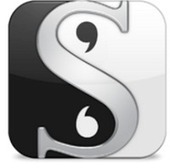Compared with how academic research was carried out in the pre-internet era, It seems like technology is really a godsend gift to researchers. From easy and unlimited access to journal articles to web tools that do the referencing and auto-syncing, everything has been digitized making it way easier for todays researchers to add to the body of the human knowledge than any time in history.
As a web 2.0 researcher and a graduate student in the faculty of education in Mount Saint Vincent University, I have had the chance to experiment with a wide variety of web tools that can make your academic life much more easier. Below are some of the web tools I have been recommending to undergraduate, graduate, postgraduate and PHD students, and professors. Check them out below and make sure you share them with your colleagues, they could be in dire need for them.



 Your new post is loading...
Your new post is loading...









Here Curator Ana Christina Pratas does a great job of breaking some research tools down for both instructors and learners:
1. Producteev
It is not easy to work as a team on a research project. There is so much going on in a high-school student’s life that getting together to work on a task is almost impossible. This simple and effective task managing software can help your students connect and work together remotely. Many companies use collaborative tools like this; it is a good opportunity for them to try it out now.
2. Labii tools
Frontiers are being breached all the time, so why not let your students experience working with others on their projects? Labii has a suite of tools that connect researchers of all kinds, providing them a venue for collaboration. Your students can join existing research groups or form their own online, thereby benefiting from the input of others.
3. Lazy scholar
Most high-school students use Google Scholar to find references, but choose only free articles because they have no budget for paid online libraries. This Chrome extension can make finding free academic resources on Google Scholar a breeze. It automatically searches out free copies or for-pay articles. It is a considerable time-saver.
4. Edugeeksclub
With so many things going on, sometimes there is simply no time to do everything. An easy way for your students to find good sources is to have a professional do it for you. Edugeeksclub can help them in any of the various stages of the research process such as the research of quality materials and related literature on the topic so that students can get into the actual research process. The important thing is how well your students use these resources, after all.
5. Pubpeer
Not everything you find in an online journal is necessarily a good source. Ask your students to check out their sources on this website and see what other academics have to say about it. Some peer-reviewed articles have been exposed as fraudulent; some merely have serious shortcomings that your student should take into account i.e., small sample size. It is a good way for them to learn to become critical thinkers when doing research. If there is anything they should learn from you, it is that they should not believe everything that they see, read or hear.
6. Sciencescape
Sometimes, less is more. The massive amount of information made available on the Internet can make it harder for your students to learn about real research. This site is a social network for academics and researchers trying to filter out the chaff from the wheat, so that you only get verified information. It is also a good site for your students to try out their research ideas and get feedback and suggestions from other like-minded individuals.
7. Scientific Journal Finder
This tool helps your students find scientific journals, not articles, that are closely aligned to their research project. They are then able to browse through these journals for promising articles. It is not the most intuitive site, but if your students know what they are looking for, it is a good place to nuggets of information.
8. Google Scholar
Hands down, Google Scholar is the first stop in any academic research. Together with the LazyScholar plugin, it is the quickest way for your students to find the information they need.
9. Colwiz
One of the things your students have to understand is accountability. They will have to deal with that when they go out into the real world. Accountability is what referencing is all about, and what Colwiz does admirably. Designed by the University of Oxford, it is a highly accurate yet simple to use reference management software used by many universities and corporations.
10. EasyBib
Another referencing management software, EasyBib has the distinction of being one of the easiest-to-use bibliography creation software around for MLA, APA, or Chicago formats. You can ask it to kick out a reference list by compiling all your individual citations in one folder, and it will produce a reference list. It is not always perfectly accurate, but not bad for a free service, although you have to pay $19.99 a year if you want it in APA.
Interesante selección de herramientas para la investigación
Herramientas online para una mejor investigación de los aprendientes.